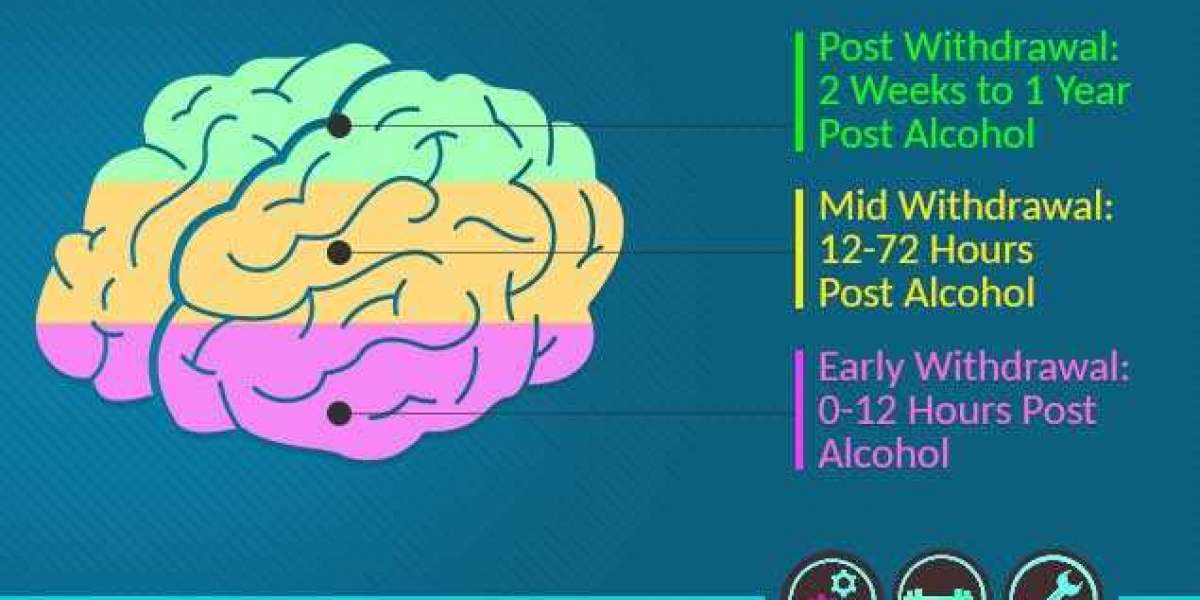If you are an alcoholic, you probably want to know the signs and symptoms of alcohol withdrawal. But what are the stages of alcohol addiction, how can you tell if you are in need of an alcohol detox program, and what is the difference between inpatient and outpatient treatment? You'll find answers to these questions in this article. To begin, you should learn more about the chemistry of alcohol and the brain's response to it. Read on to learn how alcoholism develops and why alcoholism is so common.
Symptoms
Withdrawal symptoms from alcohol may include elevated body temperature, high blood pressure, increased breathing, and sweating. Some people experience hallucinations and severe confusion during this phase. For those who drink heavily and frequently, the withdrawal process can be accompanied by psychological symptoms, such as irritability and moodiness. Some people may even experience hallucinations and seizures after only a few hours of sober living. Other symptoms may be worse than these.
Managing withdrawal symptoms is essential to the process of recovery. During detoxification, the liver works to get rid of the substances in your bloodstream. Detoxification is a complex process involving normal body functions and coping with irritability, cravings, and other alcohol withdrawal symptoms. Without the support of a medical professional, you may face dangerous risks. Fortunately, there are several ways to safely and effectively handle withdrawal symptoms, which can be managed by following a detox plan.
Stages
To avoid the discomforts of alcohol detox, it is important to know the different stages of the program. A good detox team can help you cope with the unpleasant feelings associated with withdrawal, such as sleeplessness, nausea, and vomiting. The treatment process also includes therapy to help you understand the cause of your addiction and how to avoid relapse. Although alcohol detox is not a cure for addiction, it is the first step in getting sober and living a healthier life.
Alcohol consumption has a profound effect on brain chemistry. It slows brain function. To combat this, the body produces chemicals that counteract the depressive effects of heavy drinking. Alcohol withdrawal syndrome occurs when the body is unable to produce these chemicals in sufficient quantities. Although detox symptoms may vary depending on the person, there is a general pattern to the process. Once you know what to expect, you can better prepare for your alcohol detox. If you have recently stopped drinking, you should know the stages of alcohol detoxification.
Treatment options
There are many different types of alcohol detox treatment available. One of the most popular types of detox is inpatient treatment. However, some people need outpatient treatment, which can be less expensive. Inpatient treatment involves living in a treatment facility and receiving medical attention as well as participating in therapy programs. Outpatient treatment is often suitable for people who have high motivation levels and obligations outside the rehab facility. Alcohol detox treatment options vary considerably, and you should explore all of your options before choosing one.
You might have to consider medical detox if you have a medical condition that is preventing you from recovering from alcohol. Inpatient treatment includes medications and comfort care. A medical doctor will perform a medical exam and will prescribe medication. A professional addictionologist will be able to help you choose the best method for your unique situation. You can also choose a support group to get help if you need it. These treatment options are ideal if you are unable to go through alcohol detox alone.
Inpatient vs. outpatient
The main difference between inpatient and outpatient alcohol detox programs is the level of intensity. While inpatient care involves staying in a hospital for several days, outpatient care enables people to recover at home with their families and responsibilities. Intensive outpatient care, on the other hand, offers intensive treatment for nine or more hours a week. Outpatient treatment is also more affordable than inpatient care.
Outpatient care programs allow patients to maintain a flexible schedule and continue living at home or working, while inpatient programs provide the support they need to refocus on their recovery. Outpatient care is better for people who find it difficult to commit to therapy or who fear relapse. Ultimately, though, it is up to you to decide which option best suits you. But before choosing between the two, make sure you seek professional help.






